November 10, 2017
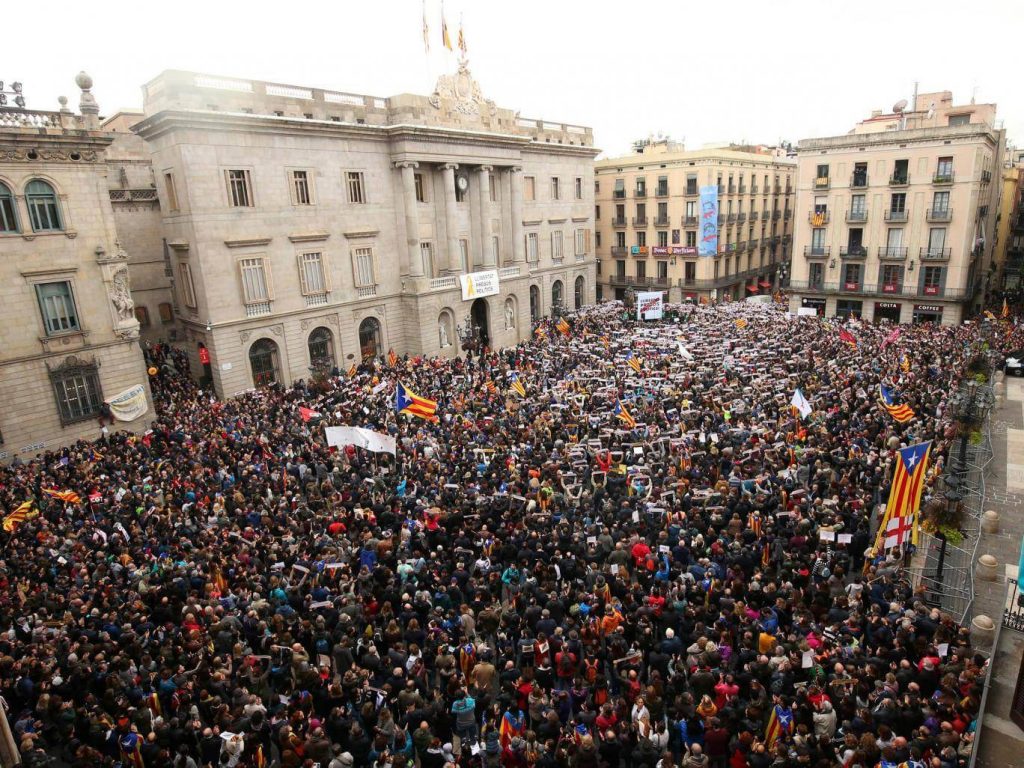
Protesters rally at St James’s Square in Barcelona (Credit: Reuters / via The Independent UK)

Last week Friday, US citizen Martha O’Donovan was arrested during a raid at her house in Harare at dawn. O’Donovan who works for Magamba TV is accused of allegedly insulting President Mugabe in a shared tweet, and her arrest is the first after last month’s creation of the Ministry of Cyber Security which focuses on crimes on social media and the Internet in general. If convicted, Martha O’Donovan could face up to 20 years in prison as she is not only charged with insulting the president, but with “’subverting a constitutional government […] [which] is directly related to her role with Magamba TV […] [and it] is what we expected all along, that it was not really about the retweet’”, but a “fishing expedition to get information about her work at Magamba TV”, Doug Coltart, a human rights lawyer in Harare, told Al Jazeera. Among others, Amnesty International condemned the arrest, stating the charges to “confirm fears that this new portfolio will simply be used to punish anyone speaking out against the authorities on social media platforms”. Following the arrest, Zimbabwean officials did not react immediately to requests for comments on the case, reported Al Jazeera.
On Monday, President Robert Mugabe fired his longtime ally and vice president Emmerson Mnangagwa, accusing him of “’disloyalty, disrespect, deceitfulness and unreliability,’ according to a press statement”, reported CNN. This move is expectedly clearing the way for Mugabe’s wife Grace, leader of the party’s so-called Generation-40 which had opposed Mnangagwa, to take over the vice presidency and eventually succeed Robert Mugabe’s rule. In order for the latter to happen, however, an amendment to the party’s constitution will have to be made to allow a woman to take the vice presidency – expected to take place within the next month. Nevertheless, Minister for Defense Sydney Sekeramayi could represent a competitor for the vice presidency as well. A Southern Africa analyst said that “[Sekeramayi’s] elevation to the VP post would be a strategic move to curb perceptions of a Mugabe dynasty.” This followed President Mugabe having already signaled a deepening divide within Zanu-PF at a rally on Saturday. Meanwhile, Grace Mugabe had “accused Mnangagwa of attempting to ‘carry out a coup’” and said she is ready to become her husband’s successor, wrote Zimbabwe Election earlier on Monday.
A close ally reported, Mnangagwa then fled Zimbabwe and is expected to arrive in South Africa late this week, stating he had “fled from ‘assassins’”, wrote The Guardian. However, in a statement Mnangagwa announced he would come back to lead Zimbabwe. Robert Mugabe is said to be facing unprecedented political challenge and Grace Mugabe is “far from a popular person”. Sections within Zanu-PF, Zimbabwe’s security establishment and much of the international community would have preferred Mnangagwa as a candidate, though he is despised by other parts within Zimbabwe.
Al Jazeera
CNN
zimbabweelection.com
The Guardian

On Wednesday, the Constituent Assembly passed a wide-reaching law also known as the “anti-hate law”, as it prohibits Venezuelans to spread messages instigating violence or hate through television, radio and social media, instead obligating public and private media “’to broadcast messages aimed at promoting peace, tolerance, equality and respect’”, reported the Associated Press. The law has been criticized for “crack[ing] down on dissent by criminalizing peaceful protests” and for further limiting free speech. The legislation also addresses political parties promoting “‘fascism, intolerance or national hate’” which cannot register with the National Electoral Council, seemingly targeting opposition parties. Opposition leader Maria Corina Machado has, however, stated that this will not intimidate the opposition, “’[w]e are not afraid of them.’”
Freddy Guevara, Venezuelan opposition politician, has been seeking refuge in the Chilean embassy since Saturday, as Venezuela’s Constituent Assembly had been investigating against him for the suspected involvement in anti-government protests and the Venezuelan Supreme Court ordered him to be stripped of his immunity and prosecuted. As of Tuesday he had not yet applied for asylum, but the Chilean Foreign Minister had stated on Monday that Chile would be willing to grant political asylum. Guevara, who is the vice president of the opposition-dominated National Assembly which had been replaced earlier this year by the Constituent Assembly introduced by Nicolas Maduro. Other Venezuelans have sought protection from Chile as well.
Last week, President Maduro invited bondholders to attend a meeting to address possible debt restructuring for Venezuela in Caracas on November 13. However, some investors have voiced concern about holding the meeting there and are now calling for a more “neutral and safer”, reported Reuters. Besides, they criticized the decision to put Vice President Tareck El Aissami who is accused of drug trafficking, in charge of the proposed meeting. Another main actor within the negotiations would be economy minister and financial head of the state oil company PDVSA, Simon Zerpa, who is alleged of corruption. Both El Aissami and Zerpa are on US sanctions and on the Specially Designated National list which could make a possible negotiation for US bondholders illegal. Meanwhile, Venezuela is further struggling with its debt situation and a possible default, as important PDVSA payments are still missing when they had been due last Friday, reported the Financial Times. Some bondholders were expecting the money to arrive soon, speculating about a delay’s possible reasons as there had not been an official statement about such. Others pointed out, Venezuela had clearly missed the deadline anyhow. At the same time, the Russian Finance Minister announced on Wednesday that Russia agreed to the restructuring of about $3 billion of loans. Though a small amount in comparison to the total debt, this could help Venezuela with other payments, wrote the NY Times.
Associated Press
Reuters
Financial Times
Deutsche Welle

On Sunday, another deadly mass shooting in Sutherland Springs, a small community in Texas, shocked the United States when a gunman entered a church with a semi-automatic weapon. 26 people were killed and 20 others wounded (10 of them in critical condition as of Tuesday) by the perpetrator who was reported to have been found dead in his car after a short chase. This devastating event followed only after about a month of the Las Vegas shooting, the deadliest in US history. While on an official trip in Asia, President Trump voiced his compassion with the victims and their families. It became known that the Pentagon “had failed to furnish information about the gunman’s criminal record from his U.S. Air Force service to a national database that should have prevented him from legally purchasing the firearms he bought”, wrote Reuters. The incident then sparked renewed discussion about gun violence in the US. Whereas Donald Trump had stated a mental health problem, not gun laws to have been the problem in this case, others have called for tighter regulation. CNN reported on gun violence being a more complicated issue than just ‘mental illness’, referring to Jeffrey Swanson, a professor of psychiatry and behavioral sciences at Duke University who said “’[a] history of violent behavior…a far better predictor of future violence than mental illness’” and “[c]alling gun violence a mental health issue is to scapegoat and stigmatize people with mental illness”. Relating to various studies conducted, a column in the NY Times reported on a correlation between gun ownership and lose gun regulation, and mass shootings.
Another topic constantly present in the media, was President Trump’s visit to several Asian countries, starting with Japan, going to South Korea, China and later Vietnam. The two major topics for his trip have been US trading relations in the region, as well as dealing with the current North Korean crisis. In this context, Foreign Minister “Tillerson pointed out that Trump, in a speech in Seoul, had ‘invited the North Koreans to come the table,’ in line with the Chinese desire for a negotiated solution” though Trump was also prepared for a “’military response’ if he deemed the threat serious enough”, wrote Reuters on Thursday. In South Korea, protesters called for peace ahead of the US President’s visit to their country. There, a canceled visit to the Demilitarized Zone (DMZ) between South and North Korea had caught the media’s attention. The South China Morning Post had speculated on Monday, that President Trump “may appear so focused on North Korea that he shows little affinity for the broader range of issues in the region, from South China Sea tensions to regional counterterrorism. This could fuel concerns in some countries that agendas are not aligned and that the administration cares little for them.” A conclusion on such a question can probably only be answered after Trump has finished his trip with his last stop in Vietnam, where the US President might also meet Russian President Vladimir Putin. Ahead of this visit, Vietnamese President Rodrigo Duterte had warned Trump of addressing the country’s human rights issues.
Reuters (Sutherland Shooting)
Reuters (Trump in China)
Reuters (Trump in Japan)
CNN (Trump in South Korea)
South China Morning Post
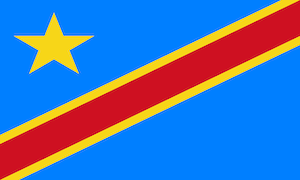
While aid organization Caritas continued to highlight the ongoing humanitarian crisis in Kasai, DRC’s electoral commission announced the long-awaited presidential elections to take place on December 23, 2018, after it had been repeatedly delayed. Official results are then scheduled to be announced on January 9, 2019, followed by the inauguration of the new President on January 13. Incumbent President Kabila has ruled the country since 2001 and was supposed to step down after his second term had ended in December 2016. Kabila however refused to do so, triggering protests during which dozens of people were killed. Reuters wrote that “[w]ith no imminent election in sight, a political crisis has set in that is fueling increasing militia violence and lawlessness in Congo’s east and center.” The opposition has claimed Kabila is using the delays to remove term limits preventing him from running for election again, following examples of presidents in Rwanda and Congo Republic. “He denies that, but has not categorically said he will step aside”, while claiming delays are due to complicated registration conditions, reported Reuters. In reaction to the late announcement of election-day, the opposition accused the electoral commission to work in favor of Kabila and three large opposition parties “presented a united front to reject plans for elections in December 2018”, stated Bloomberg. They urge President Kabila to step down by the end of 2017 and hold new presidential elections no later than mid-2018.
Reuters
Bloomberg

Last weekend, Turkish President Erdogan’s spokesman announced that the Russian-sponsored Syrian peace congress would be postponed, originally scheduled for November 18. Though an official new date has not been announced, Russian Foreign Minister Sergei Lavrov stated on Tuesday he hopes for them to take place in the near future and for the UN to support holding the congress.
Meanwhile, the Syrian army declared victory over ISIS as their last stronghold was captured in Albu Kamal, though some fighting continues in the desert area close to the town. Reports said that during the fight in Albu Kamal, many had surrendered or fled. The fate of ISIS’ last commander Abu Bakr Al-Baghdadi, however, remains unknown. Moreover, a new phase of guerilla warfare is somehow expected, considering experience in the past and ongoing tensions within Syria and Iraq, as well as the region as a whole, involving Saudi Arabia, Iran and Hezbollah. Reuters also referred to Western security chiefs stating that ISIS’ loss of territory “does not mean an end to the ‘lone-wolf’ attacks with guns, knives or trucks plowing into civilians that its supporters have mounted around the world.”
The Associated Press reported via The Washington Post that in the meantime, the United States and Russia are nearing an agreement on the resolving of the Syrian civil war, said to focus on “’deconfliction’ between the U.S. and Russian militaries, reducing violence […] and reinvigorating U.N.-led peace talks.” With ISIS defeat, both countries “are losing their common enemy in Syria and will remain in a proxy battle” in which both support different actors within Syria, increasing the need for closer communication. The two countries “have been at odds for years over” Assad’s involvement in the future of Syria. An illustration of the divide between Russia and other Western countries this week, was a clash during a Security Council meeting about a report accusing Syria of a chemical weapon attack.
Reuters (Russian-sponsored peace congress)
Reuters (ISIS defeat)
The Washington Post
TIME

In a unanimous statement made on Monday, the UN Security Council strongly condemned the violence forcing thousands of Rohingya to flee from Myanmar to Bangladesh. It expressed “grave concern” on reported human rights abuses, called on the government to “ensure no further excessive use of military force in Rakhine State, to restore civilian administration and apply the rule of law”, and urged both the governments in Myanmar and Bangladesh to work together to “allow the voluntary return of all refugees in conditions of safety and dignity to their homes in Myanmar”. The Guardian wrote that the Council further “said the government must address the root causes of the crisis by allowing ‘equal access to full citizenship.’” The newspaper further reported that the statement included most demands which had been part of a draft resolution presented last month by Britain and France, while China had opposed some of its details. According to diplomats, before China agreed to the statement, “language on citizenship rights was watered down, along with a demand that Myanmar allow a UN himan rights mission into the country”, wrote the Guardian. In the statement, the Security Council calls on Myanmar for cooperation with the UN and encourages UN Secretary-General Antonio Guterres to appoint a special advisor on the crisis. The statement caused criticism from both, the Myanmar side for exerting “’undue political pressure on Myanmar’”, warning of sanctions possibly exacerbating religious tensions, as Myanmar’s ambassador Hau Do Suan stated, as well as from rights groups which accused the Council for not doing enough by not including the threat of sanctions.
After a land rights activist died of his injuries being beaten in the context of claiming back land, activists are calling for a thorough investigation, beside a general urge to address rising territorial disputes and land rights in Myanmar. A majority of the population lives in rural areas, depending on agriculture for their living. On Friday, a court in Myanmar sentenced a Singaporean and a Malaysian journalist, along with their local driver and interpreter, to two months in prison, after an arrest last month for flying a drone over the parliament.
The Guardian
The Washington Post
Reuters
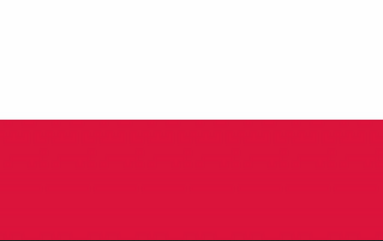
On Monday night, several hundred of people walked silently in Warsaw in memory of Piotr Szczesny, a man who died at the end of October after setting himself on fire in front of the Palace of Culture, a landmark in Warsaw, in protest of the current government’s policies. The Polish government has been led by the right-wing Law and Justice party (PiS) for two years and has been, among other things, criticized of jeopardizing the freedom of the media and judicial independence (also see our last Weekly Report featuring Poland). Reuters reported that Piotr Szcezsny had scattered leaflets around himself stating he loves freedom above all and that was the reason for committing the act of self-immolation, hoping his death would shake the conscience of people. A protester on Monday told Reuters, he “was full of respect” for Szczesny and that he was worried about the political situation in his country. He said “Many people live in the conviction that politics doesn’t concern them. Politics is us, we ordinary people create politics.” Project Syndicate wrote in more detail about what Szczesny addressed in his letter, and further presents some of the mixed reactions to his drastic action. It concludes that “[a]fter an act of despair such as what Poland witnessed this month, the first priority should be to mourn the victim. The second should be to channel the despair that many are feeling in ways that nurture hope.”
Further underlining its current nationalist stance, Poland announced planning to ban Ukrainians with “anti-Polish views” at the end of last week, though little is known about the details of the policy. Polish Foreign Minister Waszczykowski said this measure followed disrespect exhibited at a Polish cemetery in Lviv which had been part of Poland before World War Two. Waszczykowski also said that while Poland is sympathetic of Ukraine’s struggles with Russia, “historical issues” should not be pushed aside. Poland itself is currently home to 1.5 to 2 million Ukrainians.
Foreign Affairs published an in-depth article assessing the reasons for continuing popularity of PiS within Poland despite international criticism, stating an effective combination of social conservatism and nationalism with welfarism to be the crucial factor. “Poland’s ruling party has responded to two of the major issues of contemporary European politics—identity and inequality” and “has cleverly positioned itself as an anti-establishment party representing the Polish people against corrupt liberal elites”, as well as against Western Europe, making use of a current unpopularity of Western social models. Another aspect mentioned in the article is the weak, divided and unsure state of the current opposition.
Reuter (silent march in Warsaw)
politicalcritique.org
Reuters (ban of anti-Polish“ views)
Foreign Affairs
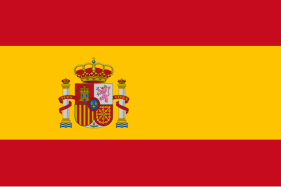
This week, road and rail service blockages and other demonstrations by pro-independence groups, were disrupting life in Barcelona also affecting universities and schools, though the call for a general strike was left unheard. On Wednesday, the Spanish Constitutional Court officially annulled the unilateral declaration of independence by the Catalan parliament, as had been widely expected after an earlier suspension by the court. However, according to a BBC interview, Foreign Minister Alfonso Dastis stated that the Spanish government will, in recognition of the recent developments in Catalonia, consider changing the constitution to allow legal, nationwide independence referendums in the future. The issue will be addressed by a special committee in the Spanish parliament, the Foreign Minister said, highlighting it was clear that if such referendums would be allowed, only when the whole Spanish population participated. European Commission President Jean-Claude Juncker urged Europe this week, to stand up against separatism when Catalan independence has deeply divided Spain.
After ousted Catalan president Carles Puigdemont and four ex-Catalan ministers had fled to Brussels, later turning themselves in to Belgian authorities on Spanish arrest warrants, a judge saw no reason to keep them detained and released them quickly on condition they would stay in Belgium and attend court sessions within two weeks. The Catalan politicians had fled Spain and did not show up for questioning in Madrid last week, stating “they wanted to make their voices heard in the heart of the European Union […] maintaining they could not get fair trials”, wrote the Chicago Tribune.
The speaker of the Catalan parliament Carme Forcadell and four other Catalan government members had appeared at Spain’s Supreme Court and were eventually granted bail after they had testified for their role in the context of the referendum and declaration of independence in Catalonia. Along others, they are facing “charges of rebellion, sedition and misuse of public funds”, wrote The Guardian. This ruling might have relieved Puigdemont and others who had fled. Nevertheless, eight other former Catalan ministers along with leaders of the two main pro-independence groups are already in custody, waiting for investigations by Spain’s highest criminal court, the Audiencia Nacional, following a rejection of an appeal for their release by the high court.
BBC
Chicago Tribune
The Guardian

After Cambodia has been tightening its grip on the opposition ahead of next year’s crucial vote and the government asked the Supreme Court to dissolve the main opposition Cambodia National Rescue Party (CNRP), Prime Minister Hun Sen called on people to ‘bet’ on the dissolution of the CNRP, saying “’it’s a 1 against 100 odds’” and “’it’s all open for betting’”, wrote Reuters. The news outlet also reported on attempts of showing local populations the benefits of grassroots democracy, such as by local council leader Sin Rozeth who had profited from the US funded National Democratic Institute (NDI). However, as the government is cracking down on opposition activities on all levels and only a small percentage of people who should have registered to vote by November 9 had done so, the “shaky democracy” of Cambodia is at stake.
Reuters (Hun Sen comment)
Reuters (grassroots democracy)
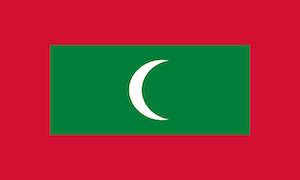
Reports have stated that Indian and US representatives held talks addressing the current political situation in the Maldives, also touching upon the issue of extremism. Raajje wrote that key points on the agendas had been political detainees, former President Mohamed Nasheed, the trials of a Maldivian MP, as well as events in the Parliament, such as a military siege in Parliament premises. Meanwhile, on a press conference on Tuesday, Maldivian Member of Parliament Riyaz Rasheed “has accused Sri Lanka of assisting alleged opposition efforts to overthrow the Maldivian government”, wrote DaillyMirror Sri Lanka. He said to be concerned about Sri Lanka allowing Maldivian politicians in exile to plot attempts of ousting President Abdulla Yameen, reported DailyMirror referring to the Maldives Independent.
Raajje
DailyMirror.lk
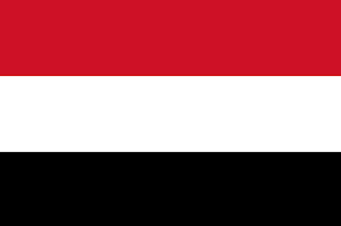
The Saudi Arabia-led coalition forces decided to temporarily close all Yemeni air, sea and land ports, following an intercepted missile which had been fired towards Riyadh by the Iran-allied Houthi militia on Saturday. Human Rights Watch stated that the attack can likely be classified as a war crime. While it had been announced that aid workers and humanitarian supplies would still be able to pass the blockage, the Red Cross reported it had not been able to deliver some of its supplies. This could threaten the Yemeni population even further, confronting what UN official Jens Laerke called “the world’s worst humanitarian crisis at the moment”, according to BBC. Yemen is facing a cholera epidemic and the UN says millions of Yemenis are on the brink of famine. “The United Nations and international aid organizations have repeatedly criticized the coalition for blocking aid access, especially to the rebel-held north.”
Reuters
Human Rights Watch
BBC
Other News
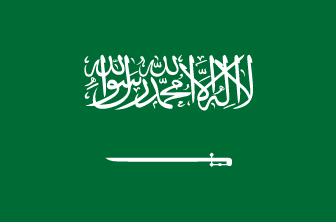
Another headline present in the News this week, was the start of an anti-corruption campaign at the weekend against Saudi Arabia’s political and business elite, including the arrest of 11 princes. This move seems to be part of Prince Mohammed bin Salman’s campaign of reform and substantial political, societal and economic change in Saudi Arabia, but also a measure to further tighten his grip on power, as reported in these Reuters and The Guardian articles. Meanwhile, Human Rights Watch raised concerns about the legal process and a lack of presented evidence for the detentions, and further referred to “a wave of other recent arrests, including of clerics, human rights activists, and intellectuals” in their article.
Paradise Papers
Another topic which repeatedly headlined international news were the “Paradise Papers”, the world’s second biggest data leak, including 13.4 million documents which were investigated by 96 media companies worldwide. They mostly reveal offshore investment activities and information surrounding ‘tax havens’. The Guardian assembled some of the key findings.
CANVAS’ Daily News
Also read what we featured in our daily news section this week:
Bonn Protests at COP23 – How do mass-protests cause change?
South-Koreans are protesting against Donald Trump ‘War Mongering’ – and in support of it
Evacuate Manus now! – Australian activists stage multiple protests over conditions in Refugee-detention center